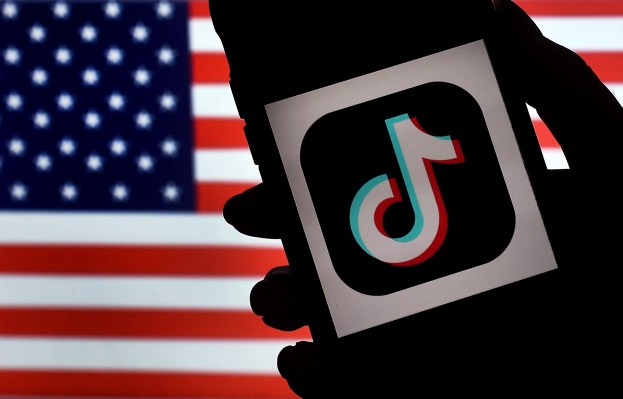TikTok is pushing back against claims of bias in the Israel-Hamas war, after American politicians resumed efforts to ban the app over the apparent popularity of pro-Palestinian content. In a recent open letter, Senator Josh Hawley (R-MO) said that the influx of content critical of Israel could “propagandize Americans.”
Some American politicians blame TikTok for young voters’ support of Palestinians, and insinuate that the platform pushes pro-Palestine content over pro-Israel content — a sentiment that TikTok previously said is “simply false.” Creators who have voiced support for either side of the conflict allege that they’ve been censored; an open letter signed by multiple Jewish TikTok creators accuses TikTok of failing to moderate antisemitism claims that Jewish creators’ posts about Israel aren’t receiving engagement, while many pro-Palestinian creators have encouraged followers to use code words and symbols to avoid content suppression.
The company responded to allegations of bias again this week.
“Blunt comparisons of hashtags are severely flawed and misrepresentative of the activity on TikTok,” the company said in a blog post published Monday. Further in the post, the company stated, “Our recommendation algorithm doesn’t ‘take sides’ and has rigorous measures in place to prevent manipulation.”
The post follows weeks of renewed calls to crack down on the app, which is owned by the Chinese company ByteDance, over national security concerns. In an interview with Sean Hannity last month, Senator Marco Rubio (R-FL) said that young Americans are “amazingly pro-Palestinian [and] pro-Hamas,” and blamed TikTok for the “constant bombardment of information, anti-colonial messaging and all this other ridiculousness.”
Hawley, who has spearheaded efforts to ban the app, came down on TikTok again in an open letter to Treasury Secretary Janet Yellen last week, calling it a “crucial test case” in the app’s “power to radically distort” information. He claimed that analysts attribute the disparity in younger Americans’ support of Palestine in comparison to older generations to the “ubiquity of anti-Israel content on TikTok.” Hawley asserted that the content, like widespread calls for a ceasefire, align with China’s foreign policy, and expressed concern that Americans could be influenced.
Hawley’s letter cites an October 25 X (formerly Twitter) thread by former Tinder executive Jeff Morris Jr., who said he tried to “reverse engineer the TikTok algorithm” and found that “Israel is losing the TikTok war.” He compared the total views for pro-Palestinian hashtags on TikTok to those of pro-Israel hashtags, and claimed that TikTok users are incentivized to post “anti-Israel content” in order to game engagement and increase their following. Morris also posted a screenshot of what he called “anti-Israel bot farms” from the messaging app Telegram, which is not affiliated with TikTok, where users encouraged each other to “ratio” the state of Israel’s account on X, which is also not affiliated with TikTok.
In its initial post appearing to respond to Morris’ thread, TikTok stated that “unsound analysis” of its hashtag data caused some to “falsely insinuate TikTok is pushing pro-Palestine content over pro-Israel content to U.S. users.”
In its follow-up post, TikTok pointed out that users in regions like the Middle East and South East Asia account for a “significant portion” of views on pro-Palestine hashtags. The company also noted that the volume of content related to Palestine and content related to Israel is similar across TikTok, Instagram and Facebook. On Instagram, for example, there are 5.7 million posts tagged #FreePalestine, and 214,000 posts tagged #standwithIsrael. To ensure that its algorithm is “acting as TikTok intends,” the company said, it has given “an unprecedented amount of third-party access” to external auditors.
TikTok’s recommendation algorithm runs by creating a prediction score to rank videos, and checks that recommended content adheres to the community guidelines. In response to the war, TikTok said it launched a command center of resources and personnel, including more moderators who speak Arabic and Hebrew. The company has also cracked down on hateful behavior, misinformation and fake accounts by removing hundreds of thousands of violating videos since October 7.
“The content people see on TikTok is generated by our community and recommendations are based on the content people have previously engaged with,” TikTok continued. “TikTok does not ‘promote’ one side of an issue over another.”
It’s worth noting that in the United States, content about the war may not be as popular as politicians claim. Al Jazeera reports that in the 30 days leading up to November 8, there were roughly 6,000 posts with 55 million views tagged #standwithisrael, and 13,000 with 37 million views tagged #standwithpalestine; 177,000 posts with a collective 946 million views were tagged #freepalestine. Still, none of the tags made it to the top 100 for the month — the app was instead dominated by Halloween content, memes about Ohio and videos about the new “Five Nights at Freddy’s” movie.
And as TikTok pointed out in its blog post, young people have been sympathetic toward Palestine “long before TikTok existed.” Gallup polls dating back to 2009 show that while older generations tend to sympathize more with Israel, Democratic millennials are increasingly more sympathetic toward Palestinians. Gallup polling data also shows that American favorability toward Israel has been falling since 2020 across party lines, with favorability among Democrats falling from 67% in 2020 to 56% in 2023.
“It’s critical to understand that hashtags on the platform are created and added to videos by content creators, not TikTok … It’s easy to cherry pick hashtags to support a false narrative about the platform,” TikTok said.
